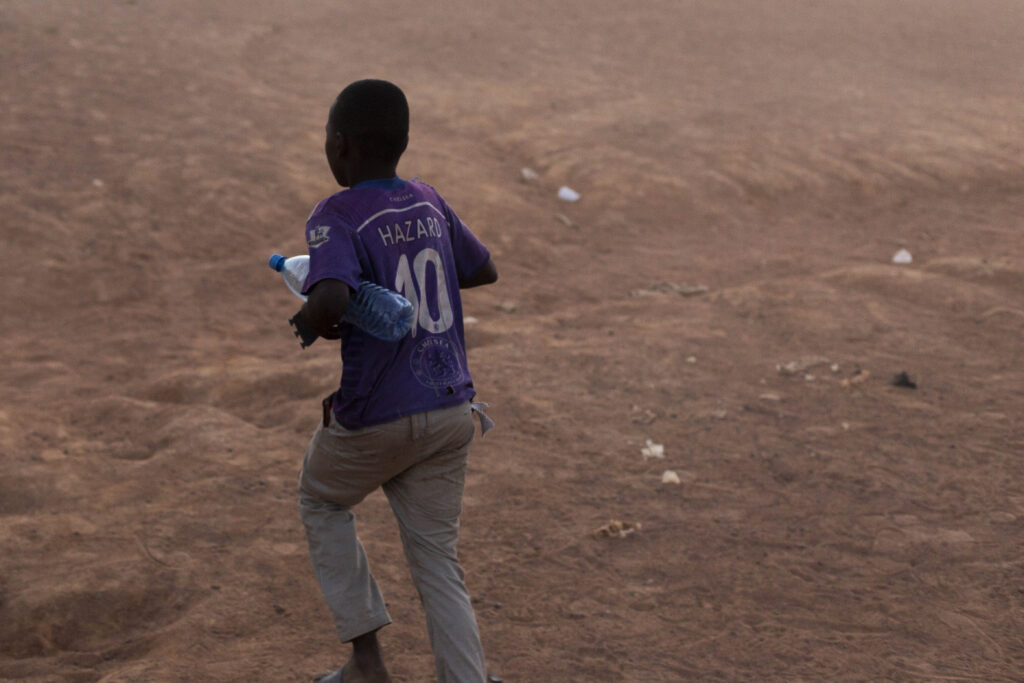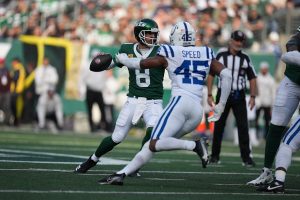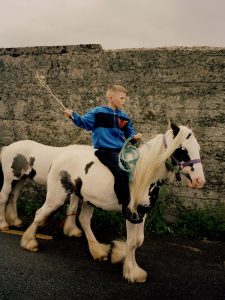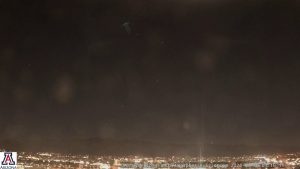
In the five years since, Champions League Koulikoro has become a repository of images of the fan-champions of football in West Africa. Fofana has ventured away from the roof and into the streets, markets, and homes, focusing on different groups in society. “I’d spend days with workers from fishermen to mechanics or blacksmiths, to document how football shirts are worn as workwear, then focus on women or people in conflict zones or those going to the mosque,” Fofana explains. The initial concentration on football shirts became a gateway for a broader documentation of contemporary West Africa that has since been exhibited across the world, from Miami Art Week to London’s OOF Gallery – and at the African Biennale of Photography in Bamako where the work began.
The fervour for football in this part of the world runs deep – so deep that the myriad of shirts proclaiming an affinity with foreign teams is completely unremarkable. “People do not know much about West Africa in Europe, but they are among the greatest supporters for these European teams that I have seen in my entire life,” Fofana says. “The biggest fans of Real or Barca – they’re in Casablanca, they are in Bamako, they are in Dakar.” Once Fofana noticed the trend, documentation was the first priority. “It was interesting to reverse the gaze, because Africa looks a lot at Europe in terms of football,” he says. “Football gives concrete expression to all the aspirations of young people; there is always this desire to go to Europe, to play in Europe, to change your life.”
Fofana’s work builds on a long tradition of Malian street and portrait photography, known internationally through the work of Seydou Keïta and Malick Sidibé. He cites Tobias Zielony’s portraits of overlooked youth as his main influence. Fofana’s work confounds the idea of gaze by turning attention back on those who so closely watch European teams (gazing, if you will) without the power or authority that the term has come to imply. This contrast between the European league – with all its associated fame and wealth – and its West African supporters is at the centre of Champions League Koulikoro.
The breadth of environments forced Fofana to adapt his working processes, impacting his style. Shooting in public spaces, often on the back of a motorbike driven by his cousin or in areas of heightened conflict, meant working quickly and using a more discreet camera or a phone. His subjects, whether market sellers or children, rarely engage with the camera. Some have their backs turned while others appear to just turned away, letting the focus fall on the shirts, crests and player surnames emblazoned across them.




